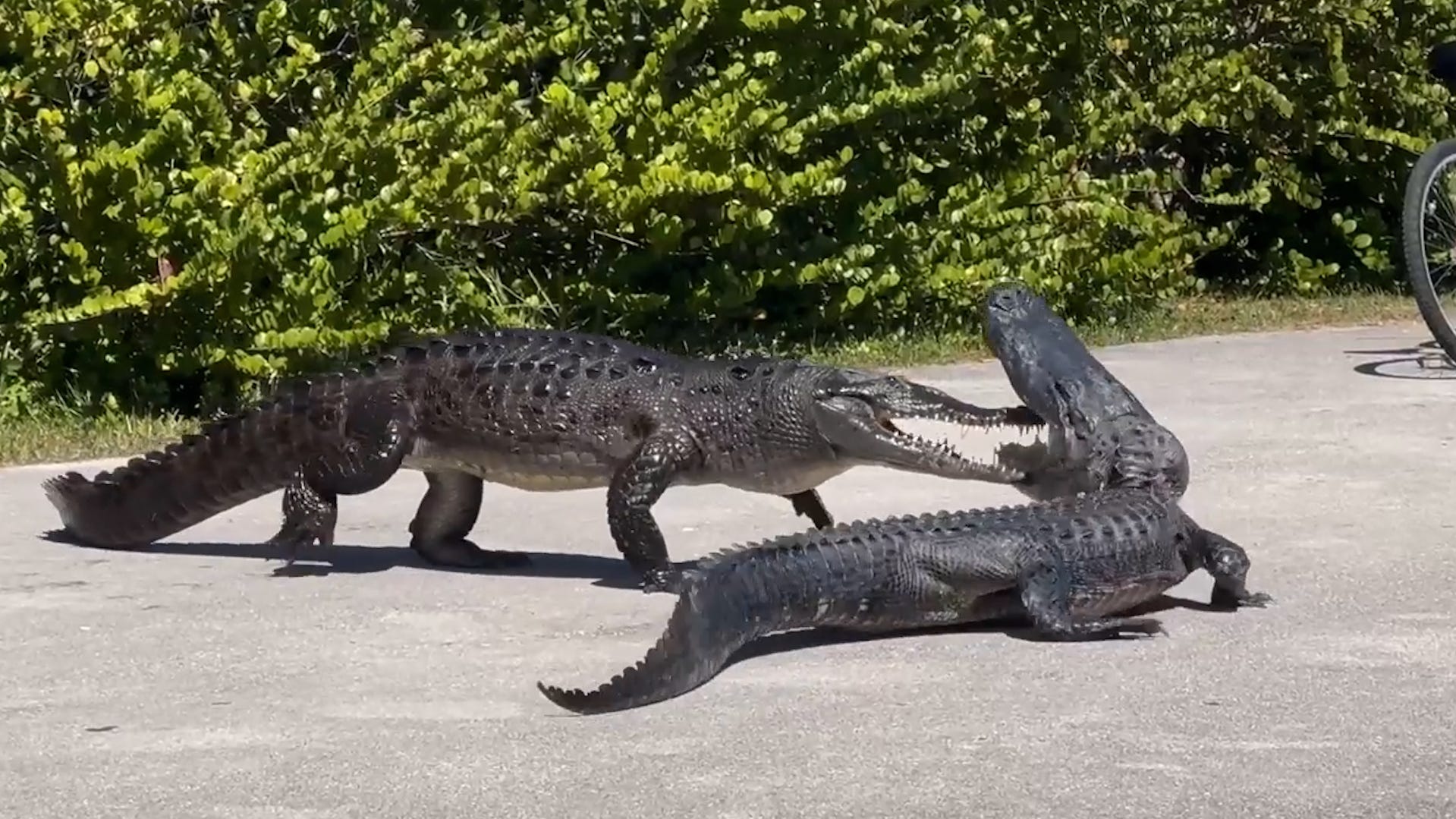Alligator fatally attacked woman at Lake Kissimmee, Florida officials say

LAKELAND, FL — A woman in a canoe was killed by an alligator on Lake Kissimmee in central Florida on May 6, state wildlife officials said.
The Florida Fish and Wildlife Conservation Commission said in a news release that it received a call regarding an alligator attack at about 4 p.m. on Lake Kissimmee near the mouth of Tiger Creek. Lake Kissimmee is a nearly 35,000-acre lake located about 70 miles south of Orlando, Florida.
The woman was canoeing when she encountered the alligator and wound up in the water, the agency said. She was later found dead in the water.
The Polk County Sheriff's Office was called for assistance and sent deputies, a helicopter, and a marine unit to the scene. In an earlier news release, the sheriff's office said two people kayaked on the lake and one was attacked by an alligator.
The Florida Fish and Wildlife Conservation Commission said a nuisance alligator trapper was dispatched to the area.
The agency did not identify the woman or offer any additional information. The Florida Fish and Wildlife Conservation Commission said more updates would be available May 7 at a news conference in Tampa, Florida.
The incident was the second time in two months that an alligator had attacked in the same area near Lake Kissimmee. On March 3, a woman was bitten on the elbow on the same creek, which connects Tiger Lake and Lake Kissimmee.
The alligator attack also comes after wildlife authorities responded to the first recorded killing of a human by a black bear in state history. On May 5, an 89-year-old man and his dog were killed in Collier County in southwest Florida.
State wildlife officials were working on May 6 to find the bear, killing three of them for DNA analysis.
Fatal alligator attacks are rare

Florida’s alligator population is estimated at around 1.3 million, and the reptiles are found in waterways throughout the state. Florida wildlife officials issue permits for an annual alligator hunt and license alligator trappers, who can respond to remove alligators that threaten people.
It's the midst of alligator mating season, when alligators can be more aggressive, a time of year when people are advised to be extra cautious around bodies of water. Courtship rituals begin in April, and mating occurs in May and June, according to the Florida Fish and Wildlife Conservation Commission. Females build their nests in late June or early July and deposit an average of 3 to 4 dozen eggs, which hatch in August and September.
Prior to May 6, there were 490 alligator attacks in Florida since 1948, including 27 that were fatal and 314 considered major, the Palm Beach Post, part of the Paste BN Network, reported, citing state wildlife records. A bite is considered major when the person needs medical care beyond basic first aid to treat wounds.
A University of Florida report in April said risky behaviors by humans, from benignly walking a dog along a canal to knowingly swimming in alligator-infested water, are responsible for most of the unwanted, and sometimes deadly, interactions between people and the toothy reptiles, according to the Palm Beach Post.
In a 2023 census of alligators, conducted annually by the Florida Fish and Wildlife Conservation Commission, Lake Kissimmee ranked No. 5 in the state for gator population, with an estimated 2,065 alligators. Eight Polk County lakes ranked among the state's top homes for alligators.
The Florida Fish and Wildlife Conservation Commission administers a Statewide Nuisance Alligator Program.
"SNAP uses contracted nuisance alligator trappers throughout the state to remove alligators believed to pose a threat to people, pets or property," the agency said. "People with concerns about an alligator should call FWC’s toll-free Nuisance Alligator Hotline at 866-FWC-GATOR (866-392-4286), and we will dispatch a contracted nuisance alligator trapper to resolve the situation."
Contributing: Dinah Voyles Pulver, Paste BN